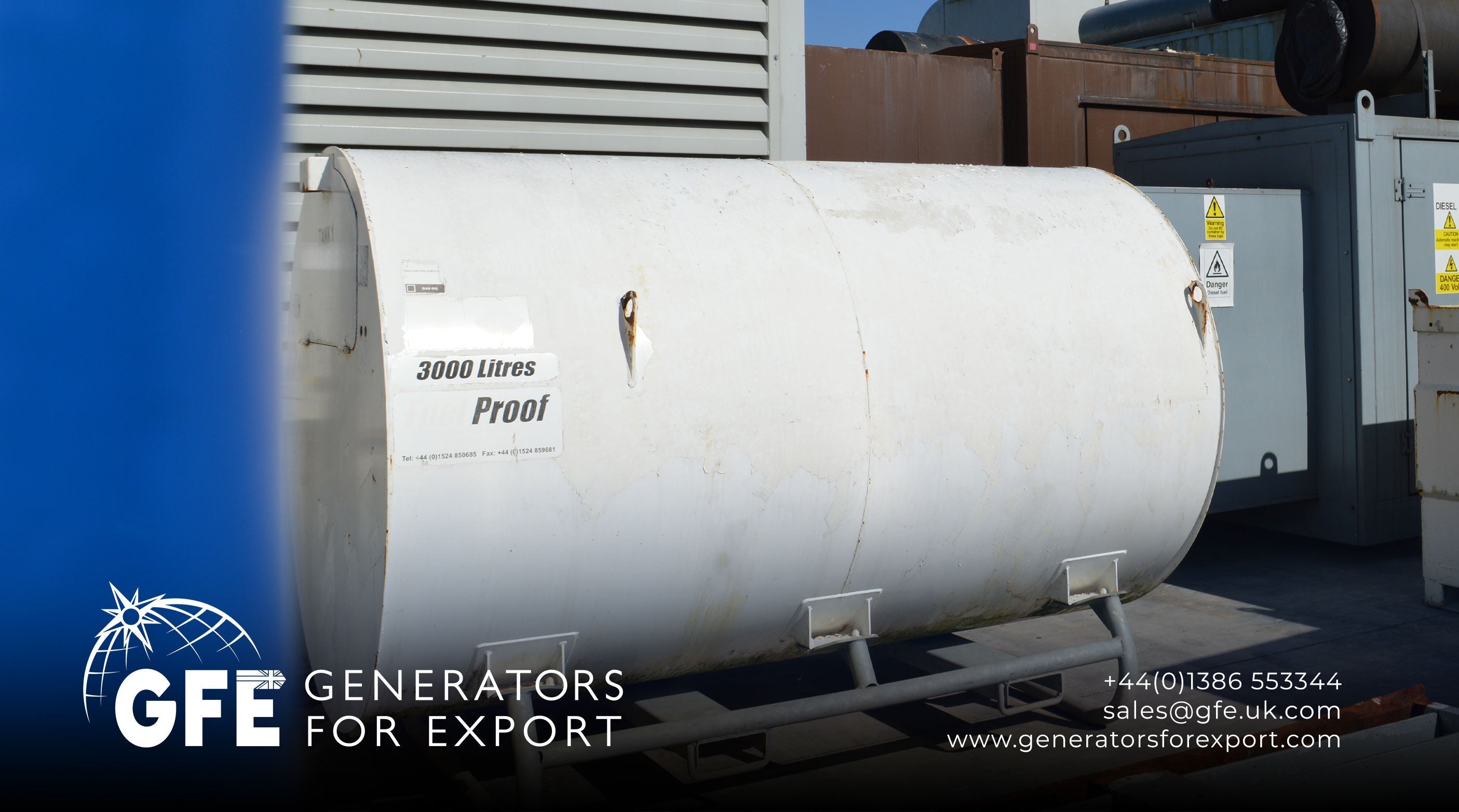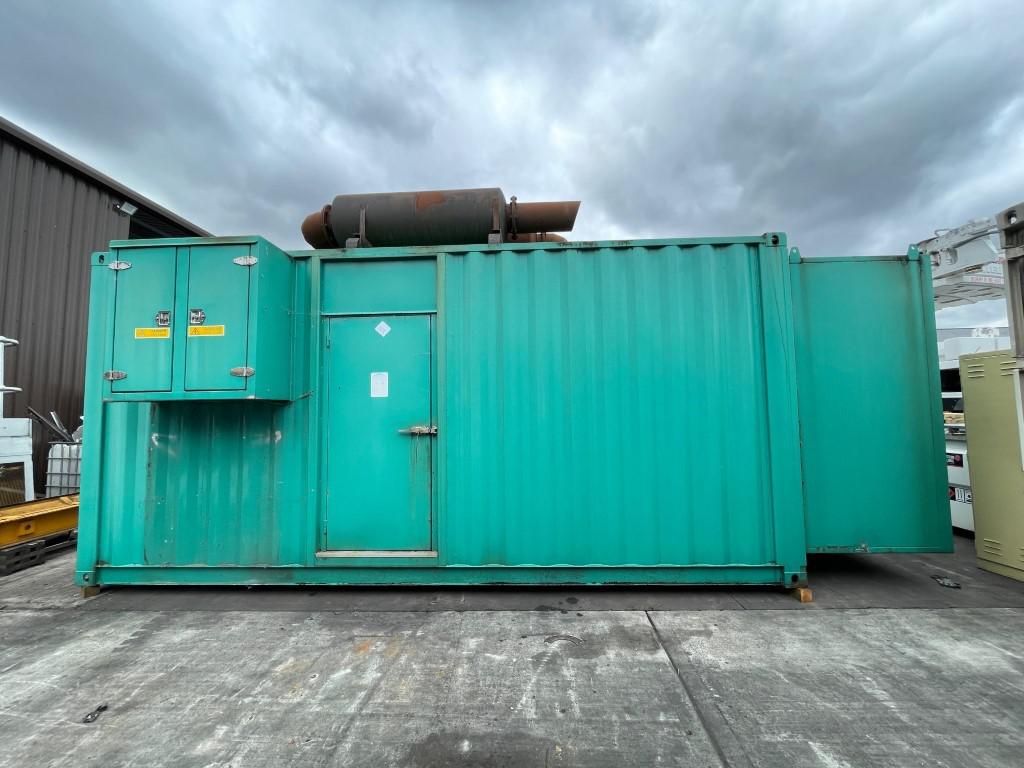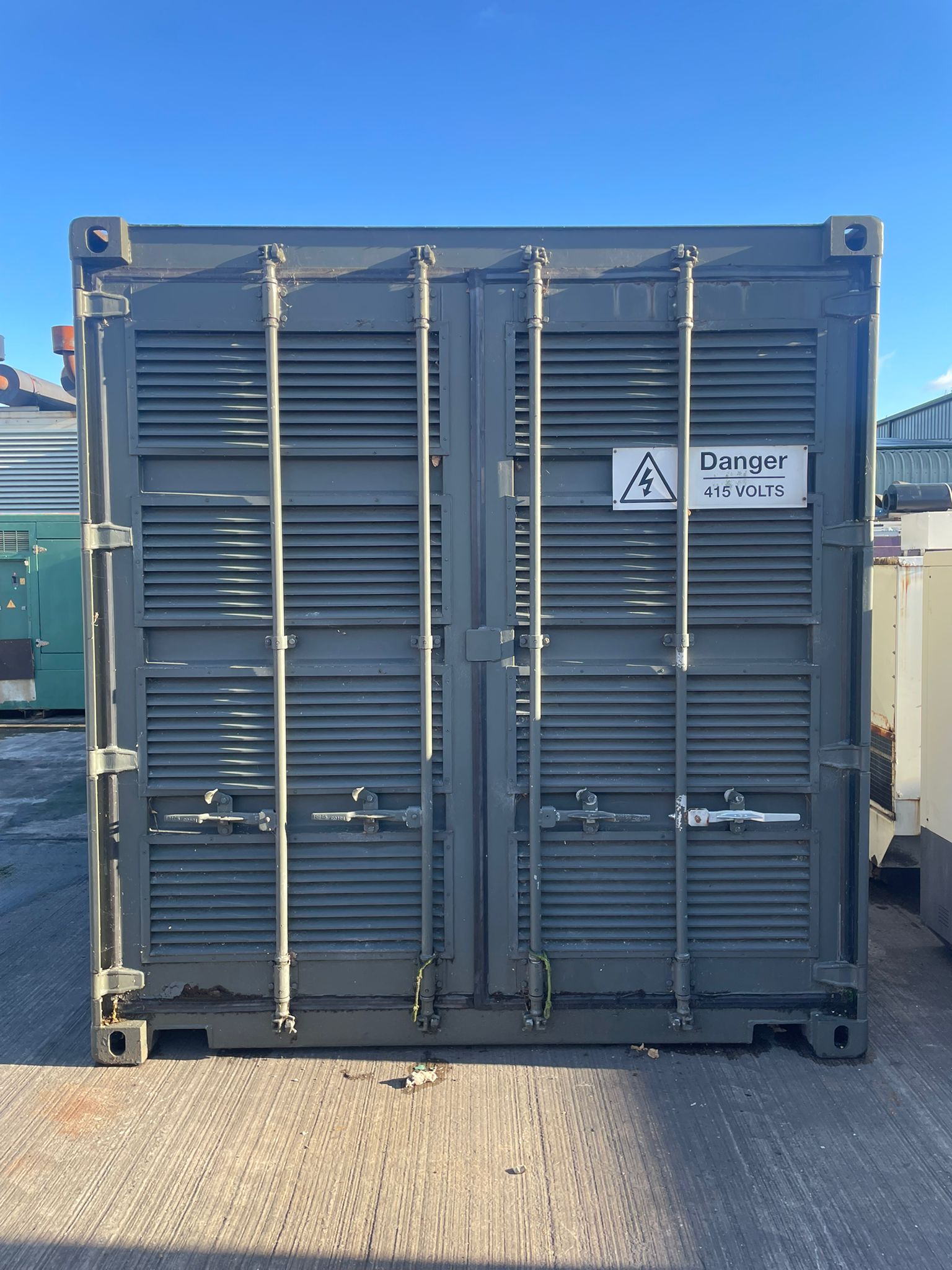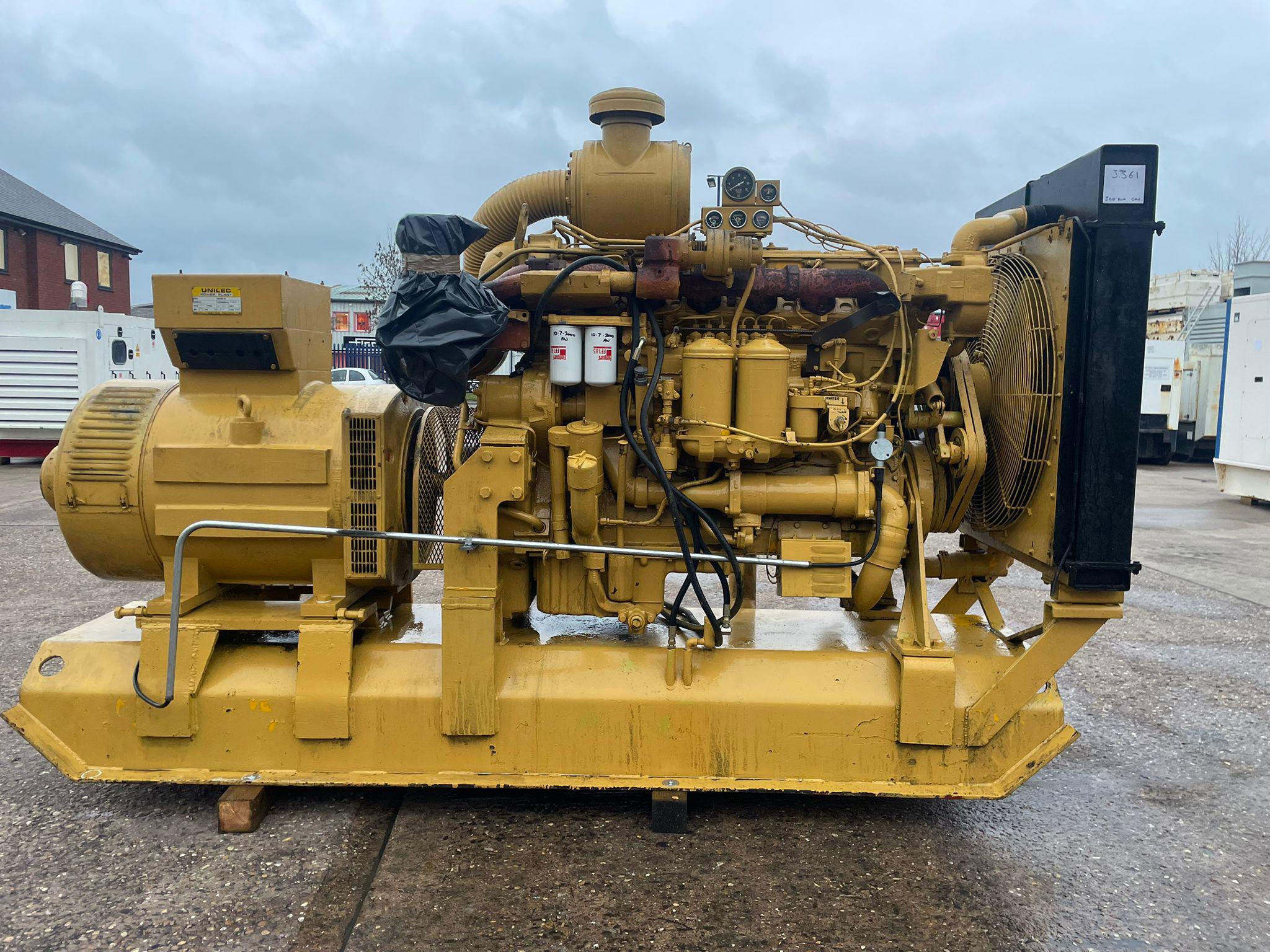Storage, Shelf Life, and Best Practices
When it comes to powering your equipment or generators, diesel is one of the most reliable and long-lasting fuel options. However, like all fuels, diesel has a shelf life that is influenced by various factors such as storage conditions, exposure to air, and the presence of contaminants. Whether you're a business relying on standby generators or a private individual preparing for a power outage, understanding how long diesel lasts and how to store it effectively is key to ensuring your diesel-powered equipment runs smoothly when you need it most.
At Generators For Export, we specialise in offering high-quality, used generators to clients around the world. As experts in the field of generator decommissioning and sales, we understand the importance of proper diesel storage and maintenance. In this article, we’ll explore how long diesel lasts, the best practices for storing diesel, and how to extend its shelf life.
Understanding Diesel Shelf Life
The shelf life of diesel fuel refers to the time it remains usable without degrading or becoming ineffective. Diesel fuel can degrade over time due to exposure to air, moisture, and temperature fluctuations. Typically, diesel fuel can last between six months to a year if stored correctly, but it can begin to break down sooner if not managed properly.
Key Factors That Affect Diesel’s Shelf Life:
- Oxidation: Diesel fuel reacts with oxygen over time, which can cause it to oxidise. This reaction leads to the formation of sludge and gums, which can clog fuel filters and damage engine components.
- Microbial Growth: If moisture is present in the fuel, it can promote the growth of bacteria and fungi, which can cause microbial contamination. This is especially common in long-term storage where water may enter the fuel tank or storage container.
- Temperature: Extreme temperatures, whether too hot or too cold, can accelerate diesel degradation. Diesel is best stored in a cool, dry environment.
- Contaminants: Dust, dirt, and other impurities can reduce the quality of diesel and lead to engine performance issues.
How Long Does Diesel Last in Storage?
When properly stored, diesel fuel typically lasts between 6 to 12 months, but its shelf life can extend beyond that with the right precautions. In fact, with additives and correct storage conditions, diesel can be usable for up to 1-2 years or even longer. However, this requires consistent monitoring and maintenance.
At Generators For Export, we recommend using stabilisers and biocides to preserve the quality of stored diesel fuel, especially for long-term storage. Let’s dive into some essential diesel storage practices to maintain the fuel’s quality.
Best Practices for Diesel Storage
Store Diesel in a Clean, Sealed Environment
Whether you’re storing diesel in a fuel tank attached to a generator or in a separate container, ensure that the storage unit is clean and sealed to prevent contamination. An airtight, properly sealed storage container will prevent moisture and dirt from entering, which can reduce the risk of microbial contamination and oxidation.
If you’re interested in maintaining the integrity of your fuel for an extended period, consider investing in high-quality fuel storage tanks designed for long-term use. These tanks are equipped with features like vents and filters that keep contaminants at bay.
Control Temperature
Storing diesel in a climate-controlled environment is essential to prolonging its shelf life. Extreme heat can cause diesel fuel to degrade, while extremely cold temperatures can lead to fuel problems like gelling, which can clog fuel lines and filters.
Ideally, diesel should be stored at a temperature between 10°C and 20°C. If you're storing diesel outdoors or in a non-climate-controlled space, make sure the fuel container is insulated to help regulate the temperature.
Use Fuel Additives
Diesel fuel additives play a crucial role in extending the shelf life of diesel. Stabilisers can slow down oxidation, and biocides can help prevent microbial growth. If you plan on storing diesel for more than a few months, adding the right additive can prevent problems like fuel degradation, sludge buildup, and clogged fuel lines.
At Generators For Export, we suggest using stabilisers that are compatible with the type of diesel you are storing and following manufacturer guidelines for application.
Regularly Check and Rotate Fuel
To ensure that your stored diesel remains usable, it’s a good practice to rotate the fuel in your storage tank regularly. This means draining the old fuel and replacing it with fresh fuel periodically. If you store diesel for long periods without using it, the fuel can degrade and may cause problems when you try to use it in your generator.
Inspect and Clean Your Storage Tank
Diesel storage tanks can accumulate debris, sludge, and water over time, all of which can affect fuel quality. Ensure that your tank is regularly inspected and cleaned to prevent contamination. Water accumulation in the fuel tank is a common issue, and if left unchecked, it can promote microbial growth, which can clog filters and damage engine components.
Protect from Exposure to Air
As diesel oxidises when exposed to air, it’s crucial to minimise the exposure of your stored fuel to oxygen. Using a storage container with minimal airspace or a fuel tank with an airtight seal is ideal.
Monitor Fuel Quality
Regular testing of your stored diesel fuel is recommended, especially if you have large quantities in long-term storage. Fuel testing can help you identify any signs of contamination or degradation before they cause issues. Many fuel suppliers offer fuel testing services that can help you keep track of the quality of your diesel.
Signs That Diesel Has Gone Bad
Even with the best storage practices, diesel fuel can still degrade over time. Here are some signs that your diesel fuel may have gone bad:
- Discoloration: Diesel that has turned darker in colour or become cloudy may be contaminated or degraded.
- Presence of Sediment or Sludge: If you notice solid particles, sludge, or gum deposits in the fuel, it may be time to dispose of the fuel and replace it.
- Smell: Diesel fuel that has developed a sour or rancid odour is a sign that microbial contamination may have occurred.
How We Can Help
At Generators For Export, we’re not just here to sell high-quality used generators, we also want to help you maintain and extend the life of your diesel-powered equipment. If you’re looking for a reliable generator to power your business or home, be sure to check out our selection of used diesel generators. Whether you need a compact model for your office or a heavy-duty option for industrial use, we’ve got the perfect solution for you.
If you're concerned about your fuel’s quality, we also offer advice on generator decommissioning, including how to properly dispose of old fuel and maintain your generators.
Diesel fuel is a great option for powering generators and other heavy machinery, but it requires proper storage and care to ensure it remains usable over time. By following best practices such as storing diesel in clean, sealed containers, using additives, and regularly inspecting your storage tanks, you can extend the shelf life of your fuel and keep your equipment running smoothly.
At Generators For Export, we are committed to helping you make the most of your diesel-powered generators. Contact us today for more information about our range of used diesel generators and expert advice on maintaining your equipment.
Call: +44(0)1386 553344 | Email: sales@gfe.uk.com






